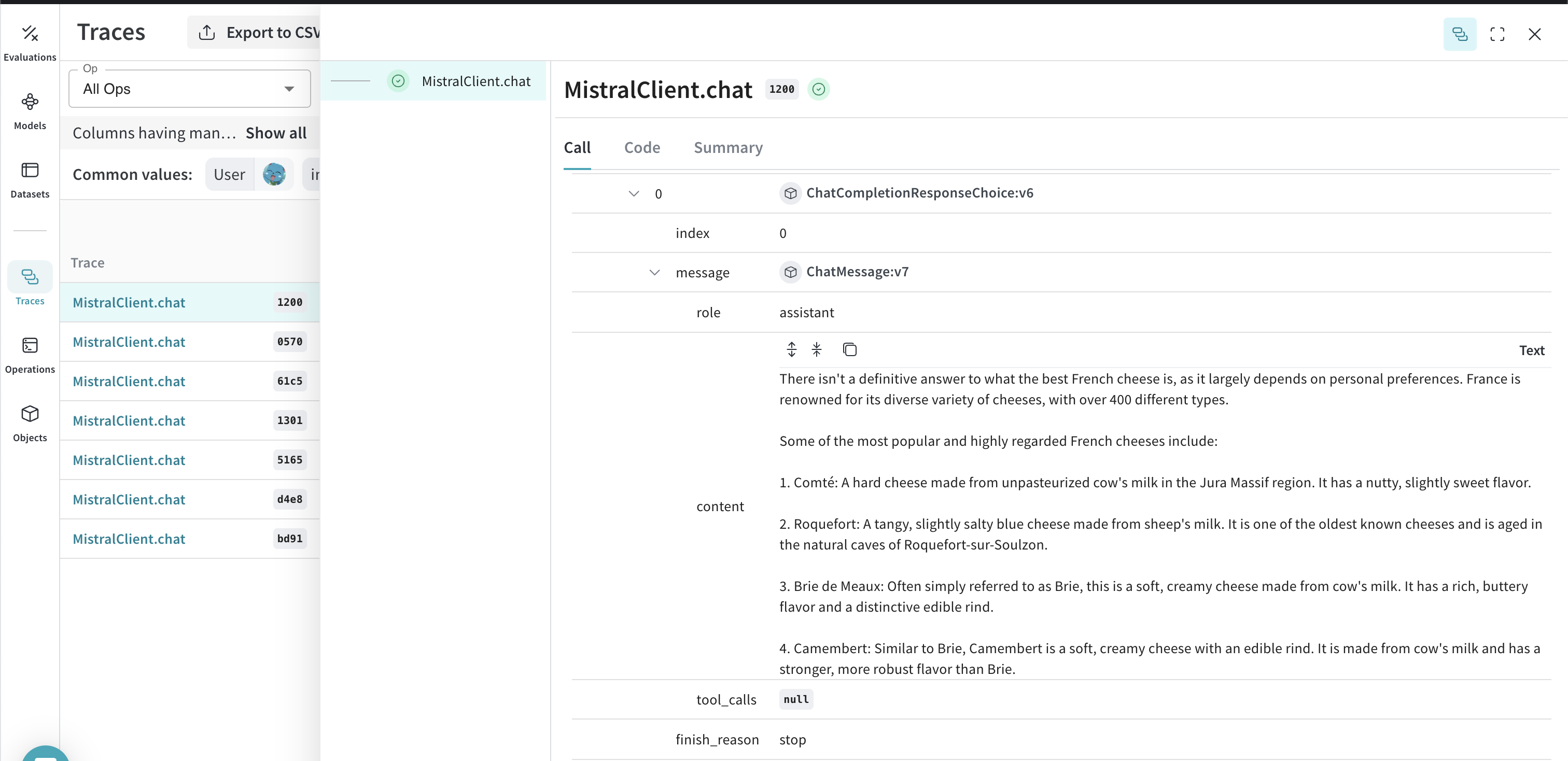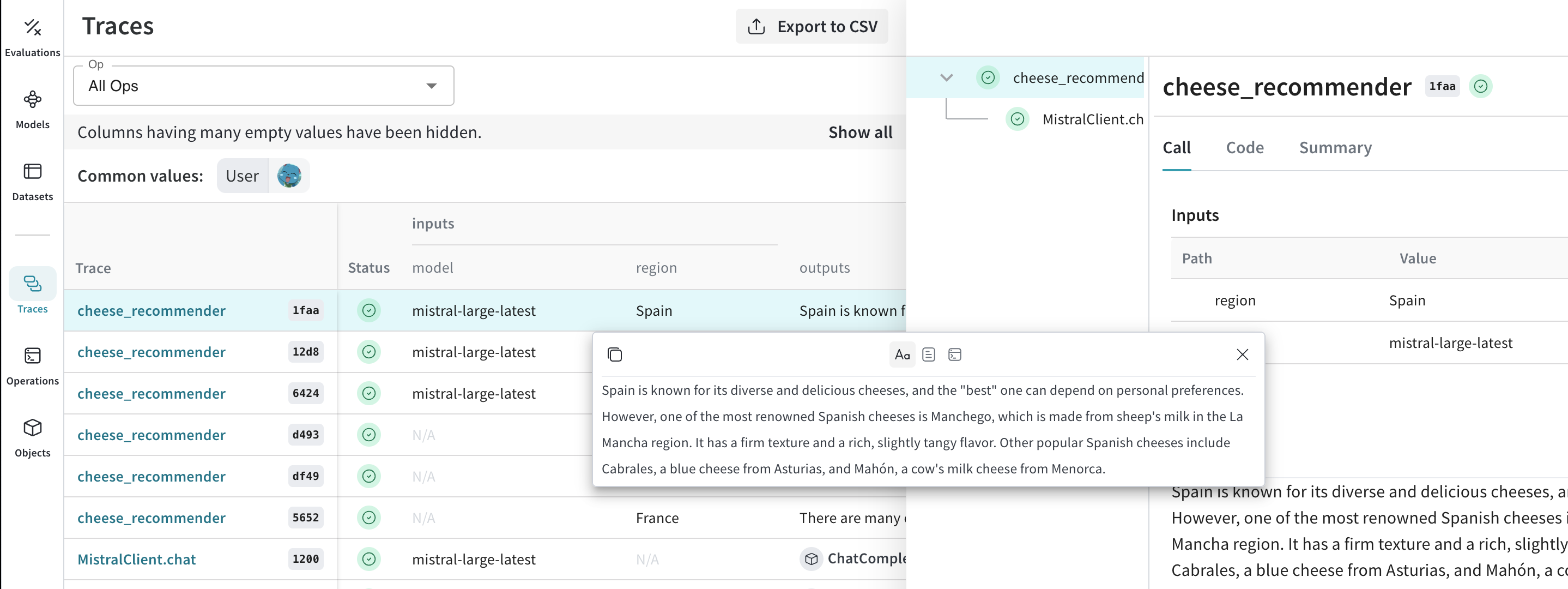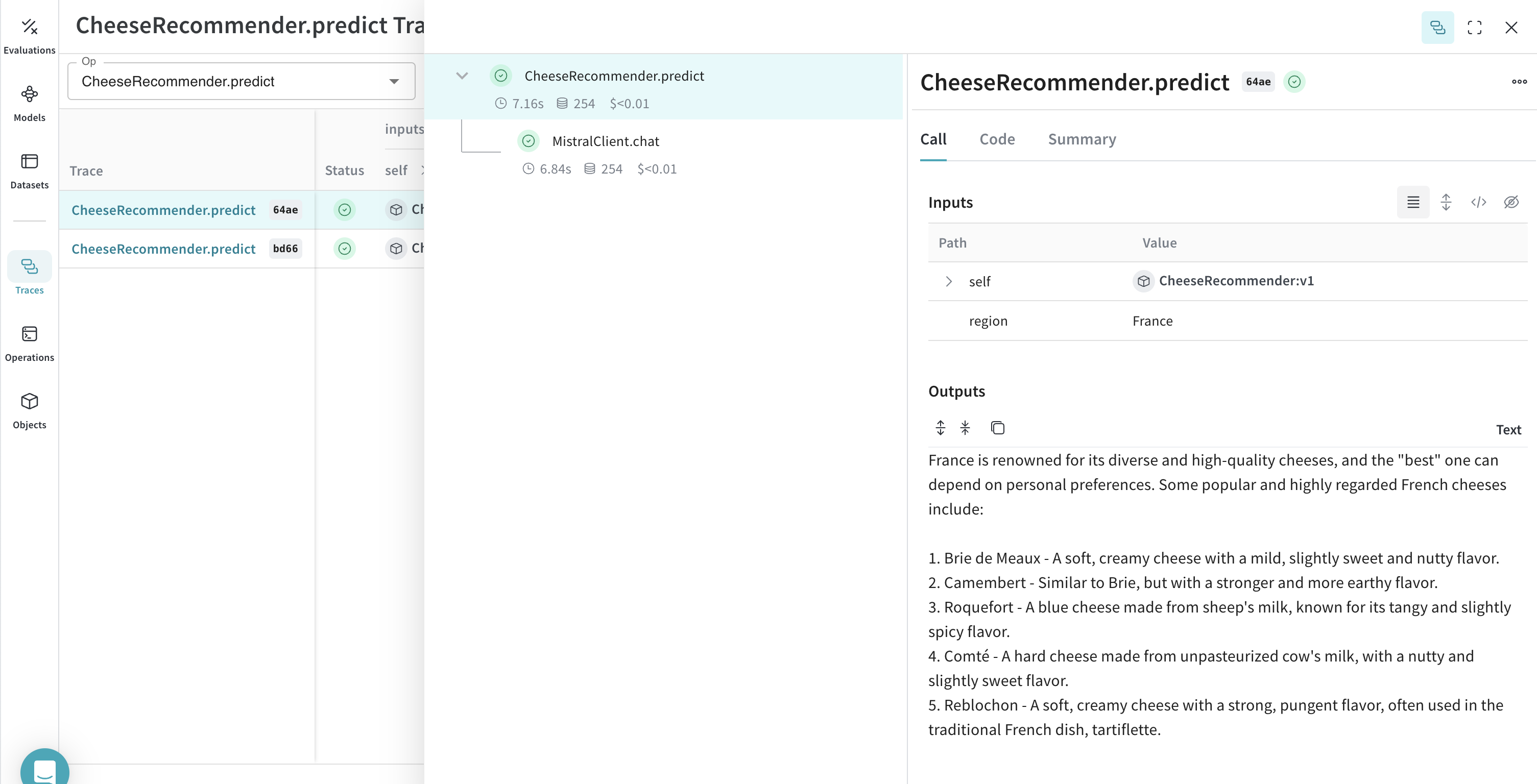MistralAI
Weave automatically tracks and logs LLM calls made via the MistralAI Python library.
We support the new Mistral v1.0 SDK, check the migration guide here
Traces
It’s important to store traces of LLM applications in a central database, both during development and in production. You’ll use these traces for debugging, and as a dataset that will help you improve your application.
Weave will automatically capture traces for mistralai. Call weave.init(), then use the library as usual:
import weave
weave.init("cheese_recommender")
# then use mistralai library as usual
import os
from mistralai import Mistral
api_key = os.environ["MISTRAL_API_KEY"]
model = "mistral-large-latest"
client = Mistral(api_key=api_key)
messages = [
{
"role": "user",
"content": "What is the best French cheese?",
},
]
chat_response = client.chat.complete(
model=model,
messages=messages,
)
Weave will now track and log all LLM calls made through the MistralAI library. You can view the traces in the Weave web interface.
Wrapping with your own ops
Weave ops make results reproducible by automatically versioning code as you experiment, and they capture their inputs and outputs. Simply create a function decorated with @weave.op() that calls into mistralai.client.MistralClient.chat() and Weave will track the inputs and outputs for you. Let's see how we can do this for our cheese recommender:
@weave.op()
def cheese_recommender(region:str, model:str) -> str:
"Recommend the best cheese in a given region"
messages = [
{
"role": "user",
"content": f"What is the best cheese in {region}?",
},
]
chat_response = client.chat.complete(
model=model,
messages=messages,
)
return chat_response.choices[0].message.content
cheese_recommender(region="France", model="mistral-large-latest")
cheese_recommender(region="Spain", model="mistral-large-latest")
cheese_recommender(region="Netherlands", model="mistral-large-latest")
Create a Model for easier experimentation
Organizing experimentation is difficult when there are many moving pieces. By using the Model class, you can capture and organize the experimental details of your app like your system prompt or the model you're using. This helps organize and compare different iterations of your app.
In addition to versioning code and capturing inputs/outputs, Models capture structured parameters that control your application’s behavior, making it easy to find what parameters worked best. You can also use Weave Models with serve, and Evaluations.
In the example below, you can experiment with model and country. Every time you change one of these, you'll get a new version of CheeseRecommender.
import weave
from mistralai import Mistral
weave.init("mistralai_project")
class CheeseRecommender(weave.Model): # Change to `weave.Model`
model: str
temperature: float
@weave.op()
def predict(self, region:str) -> str: # Change to `predict`
"Recommend the best cheese in a given region"
client = Mistral(api_key=api_key)
messages = [
{
"role": "user",
"content": f"What is the best cheese in {region}?",
},
]
chat_response = client.chat.complete(
model=model,
messages=messages,
temperature=self.temperature
)
return chat_response.choices[0].message.content
cheese_model = CheeseRecommender(
model="mistral-medium-latest",
temperature=0.0
)
result = cheese_model.predict(region="France")
print(result)


